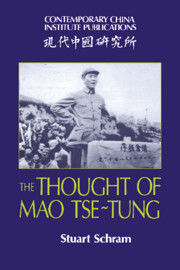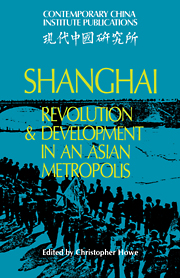2 results in Contemporary China Institute Publications

The Thought of Mao Tse-Tung
-
- Published online:
- 23 December 2009
- Print publication:
- 13 July 1989

Shanghai
- Revolution and Development in an Asian Metropolis
-
- Published online:
- 14 October 2009
- Print publication:
- 07 May 1981

